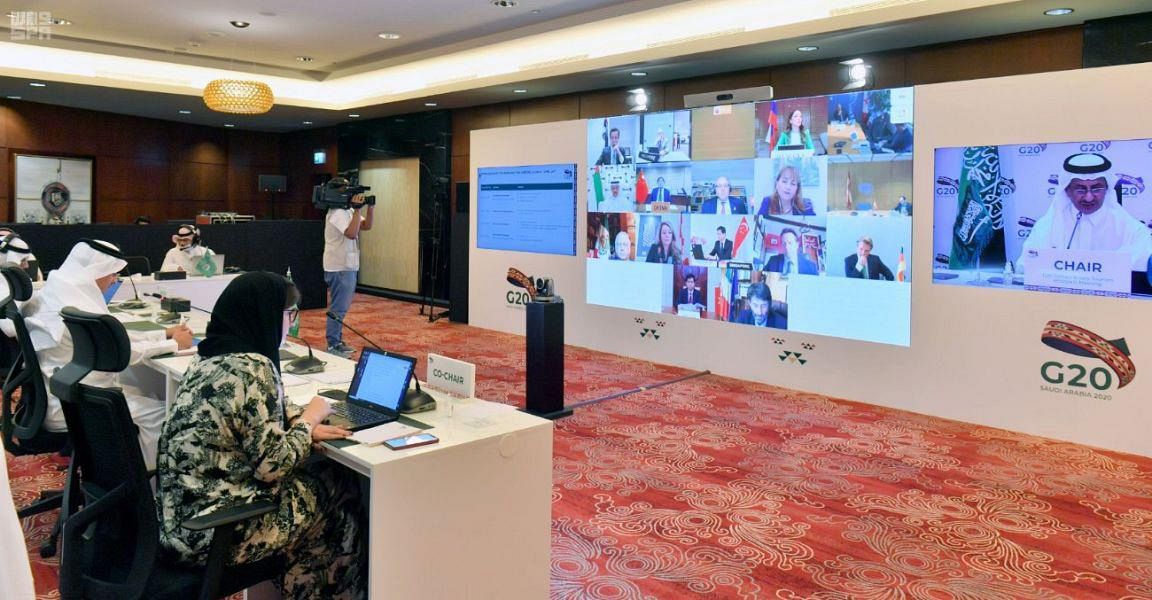
RIYADH — Tourism ministers from the Group of 20 major economies vowed on Friday to coordinate efforts in the tourism industry to help mitigate impacts of the pandemic on the global economy, according to a statement issued by the group.
The Saudi G20 Presidency, in its extraordinary tourism ministers’ virtual meeting under the chairmanship of Tourism Minister Ahmed Al-Khateeb, committed to take measures that aim to support the sector.
The meeting was convened to discuss the immediate response needed to the challenges facing the travel and tourism sector during the COVID-19 crisis, and to further develop responses to stimulate future recovery and identify ways to improve long-term resiliency in the sector.
The travel and tourism sector accounts for 10.3 percent of the world’s Gross Domestic Product (GDP), and plays a critical role in society by contributing to dialogue and understanding between peoples and cultures and facilitating cohesion in communities, the statement said.
The ministers also tasked the working group before their meeting in Saudi Arabia on Oct. 7, 2020 to identify challenges to the sector that have arisen from the crisis, to develop and share further targeted responses to stimulate recovery, and to identify ways to improve resiliency in the sector.
The sector has been hit the hardest by the pandemic with preliminary estimates from the Organization for Economic Cooperation and Development (OECD) indicating a 45 percent decline in international tourism in 2020, which could rise to 70 percent if recovery efforts are delayed until September, the statement said.
“We commit to working together to provide support to the sector and welcome the national efforts to mitigate the social and economic impacts of the pandemic by G20 countries.
“We welcome the G20 Action Plan adopted by the finance ministers and central bank governors in response to the crisis, which includes measures to maintain businesses and support households most impacted by the crisis, safeguard employment, and ensure support for developing and low-income countries,” the statement added.
“To address the immediate consequences of the crisis, we will continue our coordination with health, immigration, security, and other relevant authorities to minimize undue restrictions for essential travel such as for medical workers and stranded individuals.
“We will work with these authorities to ensure that the introduction and removal of travel restrictions are coordinated and proportionate to the national and international situation, and ensure the safety of travelers,” the statement said.
The ministers acknowledged the support provided by the private sector in response to the health emergency, such as in the repatriation process and the provision of accommodations and meals.
The ministers committed to working with international organizations, industry partners, and across governments to include travel and tourism in response and recovery programs.
“We recognize the importance of ensuring the safety and well-being of workers in travel and tourism and commit to working together to support an inclusive and sustainable recovery in the sector,” the statement said.
“To support economic recovery, we commit to ensuring a safe travel environment that helps rebuild consumer confidence in the sector, by strengthening regional and international coordination.
“We commit to helping tourism sector businesses, especially micro-, small- and medium-sized enterprises (MSMEs), entrepreneurs, and workers to adapt and thrive in a new post-crisis era, for example by fostering innovation and digital technologies that enable sustainable practices and seamless travel.
“We commit to accelerating the transition of the travel and tourism sector onto a more sustainable path — economically, socially and environmentally. To encourage inclusive recovery in the sector, we will work to support developing economies that rely on travel and tourism, especially in Africa and small island states.
“We will explore opportunities such as capacity building programs in travel and tourism to help the world economy recover, and help the sector become more inclusive, robust, and resilient.
“We commit to exchanging experiences and good practices, as well as strengthening coordination across governments to deliver integrated policy responses, including making continuous efforts in strengthening the resiliency of tourism.
“We will continue collaboration with industry stakeholders to improve the sector’s resilience, share relevant knowledge and information to improve crisis management, strengthen coordination mechanisms, and better prepare the sector to respond to future risks or shocks.
“We welcome the ongoing work by relevant international organizations such as the United Nations World Tourism Organization (UNWTO), and the OECD, as well as industry partners such as the WTTC, on COVID-19 response and recovery, and encourage countries to contribute to these efforts,” the statement concluded. — SG












